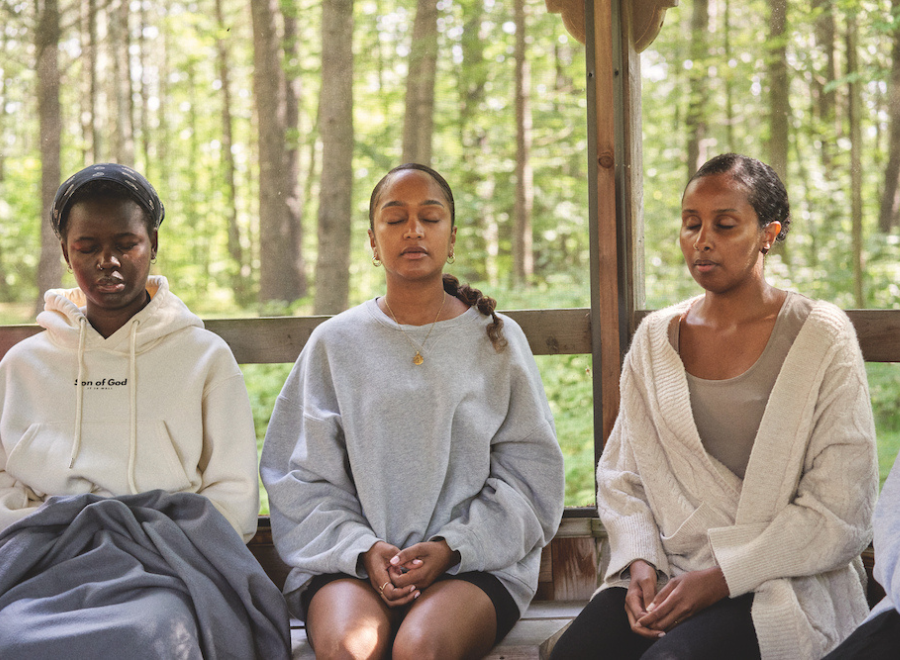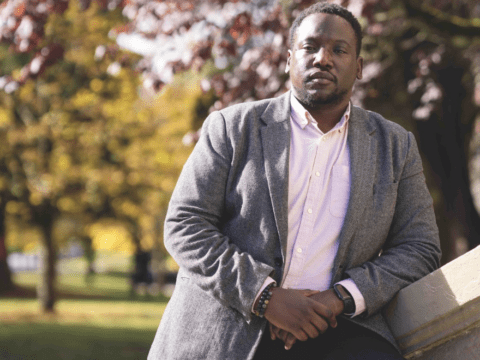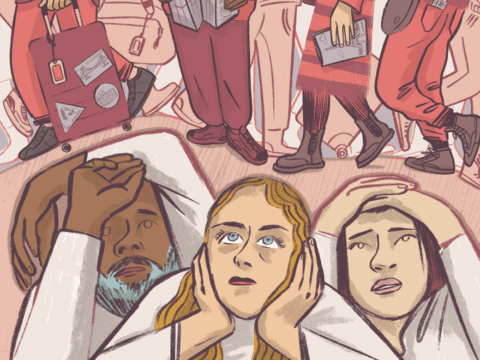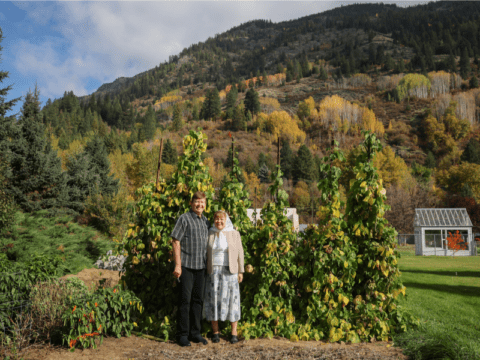An Ottawa-based program aims to address the forgotten spiritual wellness needs of street health, harm-reduction and other community and social service workers.
Founded in 2019 by Danielle Rolfe and community health worker Robert Jameson, Soul Space Ottawa hosts short workshops, day-long experiences and weekend retreats where these frontline workers can focus on their spiritual wellness. Soul Space is a community ministry of First United in Ottawa and has received grant funding from The United Church of Canada.
The two friends started Soul Space after Rolfe watched Jameson “burn out in the course of serving the people that he was caring for,” she says.
Many of these workers don’t often get opportunities to focus on themselves, Rolfe explains. Despite traumatic work environments, those who care for people dealing with substance use, homelessness and mental health issues receive fewer supports than other first responders, like paramedics and police officers. In Ontario, for example, the Workplace Safety and Insurance Board does not cover post-traumatic stress disorder treatments for harm-reduction workers. Additionally, many social service agencies don’t offer the kind of spiritual care that Soul Space provides.
More on Broadview:
“The organizations they work for are [often] strapped for cash as it is, and the cash they do have — rightly — they’re spending it on their clients. But the frontline workers kind of get lost in the fray,” Rolfe says.
Increasingly, Soul Space has been partnering with social service agencies to provide day-long retreats for entire teams of workers, who are paid by their employers for their time. Rolfe says that by running these retreats, Soul Space eases the burden on overtaxed organizations. Most of Soul Space’s offerings are in-person in Ottawa, but they do offer online meditation in collaboration with non-profit True North Insight.
Although Soul Space is funded by the church, it’s not a Christian program. Instead, it caters to the needs of workers with diverse beliefs. “The United Church really appealed to me because it had a very wide or open approach to spirituality,” says Rolfe. “I wanted to be able to offer that to the frontline workers.”
Megan Portt, a social worker who has participated in Soul Space’s programs, says spirituality is often seen as taboo in harm-reduction spaces, as workers must be careful not to impose their own beliefs on clients. “Soul Space is a place to…experiment with different ways of healing. I would describe healing as very much a spiritual practice,” Portt says. “And so [Soul Space] is somewhere we can openly talk about that, [somewhere] to breathe, to meditate, to create.”
***
Amarah Hasham-Steele is a recent Broadview intern.
This article first appeared in Broadview’s January/February 2025 issue with the title “Soul Space Gives Frontline Workers a Chance to Heal.”















